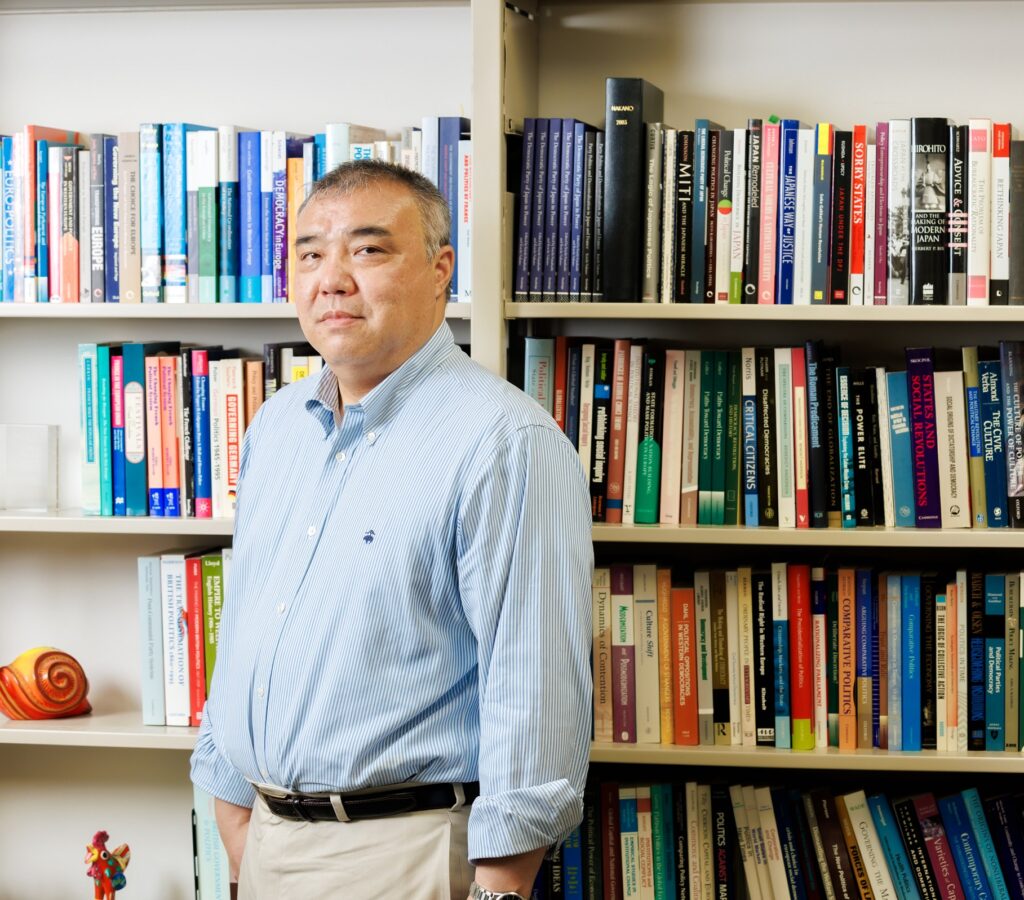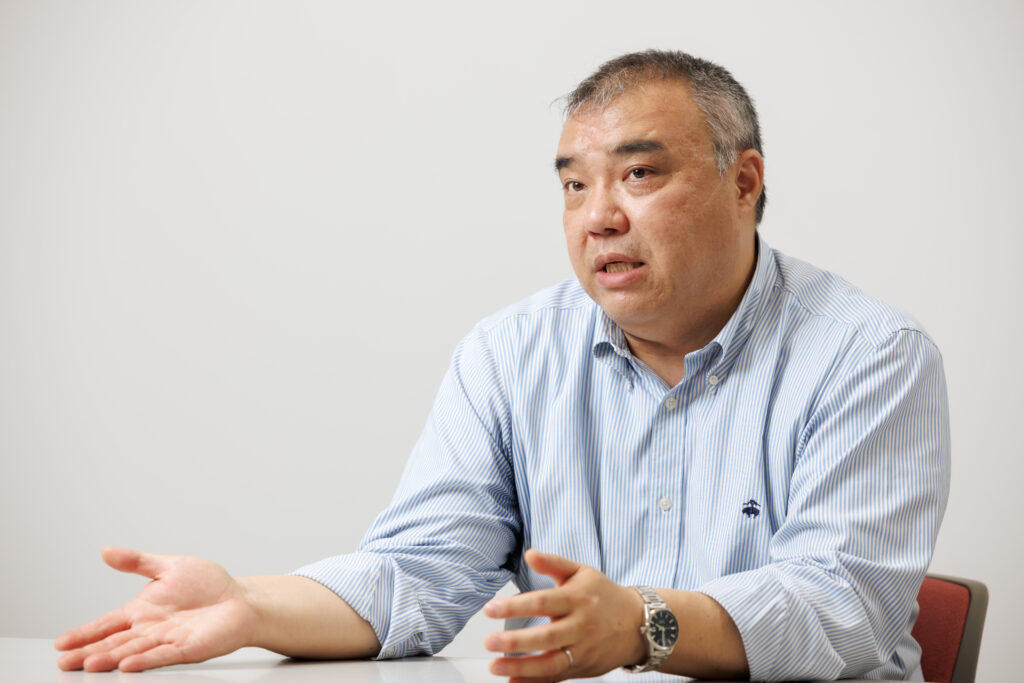
Specializing in comparative politics and political theory in the Faculty of Liberal Arts, Professor Koichi Nakano compares the political trends within Western and Asian countries with Japan, and researches their backgrounds and aims. From the perspective of global comparative politics, where does Japan stand?
Political science comprises various subfields, but my specialization is comparative politics. It is a field of study that compares different countries’ domestic politics, and I have primarily conducted my research by comparing countries in the West such as the U.K. and France with the politics of Japan.
Moreover, I have been fascinated with philosophy since my student days. As a matter of fact, the first major I studied at university was philosophy, and political theory is a subject I continue to teach. Political theory is a field that asks deep questions about the ideal form politics should take by taking concepts such as right and wrong, equality, and freedom into consideration. One’s days as a university student is a time of self-discovery, and so this area of study that helps students to consider and formulate their own opinions about freedom and equality is a subject worth teaching.
The approach at the core of comparative politics is empirical in that you learn about what is really happening in the world, formulate a hypothesis about it, gather data, and then analyze it. Then, by incorporating a philosophical approach, one can ultimately bring to light and consider one’s own ethics and values, and that is my style of research. It is important to not be too subjective so as to avoid bias, but I am skeptical that it is possible to think completely objectively when it comes to political science.
Combination of Reform and Nationalism is Universal

In recent years, I have been researching the effects of neoliberalism with a focus on administrative reforms in Japan. From the 1980s to the 2000s, the privatization and deregulation of state-owned corporations was carried out. The same thing has occurred in England and France, and I wanted to explore that trend carefully from a global perspective. What I find interesting is that with neoliberal reform, nationalism always seems to accompany it. This phenomenon is common across many countries, and the English political scientist Andrew Gamble has called it the “New Right transformation.”
Regardless of the country, politicians use nationalism as a tool to pacify domestic unrest arising from reforms. Representative of this in Japan is the controversy surrounding the Yasukuni Shrine visits. Perhaps you have noticed that many of the successive prime ministers who officially visited the shrine were known as “reformers.” The actual reforms that have been enacted have preached small government and individual responsibility while increasing precarious employment situations as well as the gap between the wealthy and the poor. To divert attention away from domestic issues, it is necessary to cover up social divisions with nationalist performance.
Nurturing Ambitious, Future Generations
I am also researching international and security policies that are the extensions of the shift to the Right. The debate around amending the Japanese Constitution is one example. Due to the increase in Asia of forceful politics that ignore the principles and laws embodied in the Constitution, I have been actively collaborating with researchers specializing in politics and law of Asian countries.
While I carry out my research, I also put a lot of effort into spreading my conclusions far and wide, especially to the younger generations. Teaching in the Faculty of Liberal Arts, I am seeing the middle class in Asia growing remarkably. While I am stunned by the students’ level of language ability and knowledge, I still worry about the future of the Japanese youths reluctant to step outside their comfort zones. We adults need to take action if we hope to foster an increase in ambitious and aggressive young people.
The book I recommend
“Utilitarianism”
by John Stuart Mill, published by Fontana Press

This was my graduation thesis topic when I studied philosophy at university. As a progressive thinker far ahead of his time, Mill advocated for such things as women’s suffrage and played a vital role in philosophy, political science, and economics. His comprehensive stance and thoughts on liberty were hugely influential to me.
-
Koichi Nakano
- Professor
Department of Liberal Arts
Faculty of Liberal Arts
- Professor
-
Prof. Nakano received a BA in Philosophy from University of Tokyo and a BA in Philosophy and Politics from University of Oxford, Trinity College. He then earned an M.A. and Ph.D. in Politics from Princeton University. He joined Sophia University in 1999 and served as the Dean of the Faculty of Liberal Arts between 2017 and 2021.
- Department of Liberal Arts
Interviewed: July 2022